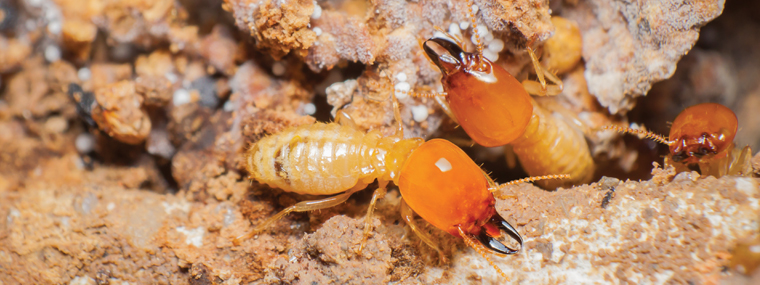
Termites and Their Effects on Condominium Developments
By Jim Fortson / Published December 2017
Note: Peter M. Cardillo has been practicing law for more than 30 years, but he may be best known for his vast knowledge and experience with claims involving termite damage. Cardillo is Florida’s go-to attorney in cases involving termite control companies that fail to live up to their obligations. We recently had an opportunity to sit down with Cardillo and chat about termite issues that apply to condominium developments. Here is a sampling from that conversation.
Question:
Let’s start at the beginning of the relationship between a condominium association or management organization and a termite control company. What are some of the things that the directors should look for when engaging the services of a termite company?
Answer:
The most important thing for associations to understand is that there are two very different contract agreements that are generally offered. One is a long-term contract that provides service and treatment; the other offers those services, but it also covers repairs for termite damage. The contract that offers termite damage repair is generally not that much more expensive than the contract that offers simple treatment and inspection. If your condominium development ends up with damage, you definitely want to make sure you have coverage that offers repairs, which can be extensive and very expensive. Actual termite damage can involve the building’s framing, and siding has to be removed just to get at the damage. On a large condominium development, this can get into the hundreds of thousands of dollars, or even millions, for repairs. That repair bond in the contract is very important. It’s the most important thing for condominium associations to keep in mind.
Question:
As an attorney, how often do you see this issue come up?
Answer:
Typically, we get involved in cases in which condominium developments don’t have that repair bond in their contracts, but they have experienced significant damage to their building(s). In those cases, we can still help, but it is much more of a challenge.
Question:
What other issues do you see?
Answer:
Probably the next most common problem is when condominium associations have agreements for termite control, but they have let those agreements lapse. Termite control agreements are like insurance policies in that they have annual renewal clauses. Sometimes we see situations in which there has been a certain lack of organization, or perhaps indecision, on the part of the condominium association, and the termite agreement has been allowed to lapse.
Question:
So is it fair to say that condominium associations need to exercise care when it comes to keeping those termite agreements in force?
Answer:
Yes. Another thing that happens is a condominium association may have an agreement with a termite control company, but then it signs a new contract with another termite control company when the previous termite agreement expires. If a problem comes up and a claim has to be made, there are now two termite
companies involved, and they end up pointing their fingers at one another. It’s better to have a single plan and stick with it, so that company is on the hook for a longer period of time and can’t try to implicate a second company.
Question:
Association boards frequently change members and that can cause some continuity issues. Do you ever see that as a problem?
Answer:
Not really. Duly elected boards have the authority to act, so it doesn’t really matter whether memberships turn over. What matters is that the board remembers to keep the termite agreements in force by paying the premiums or fees.
Question:
Should the agreement be acknowledged every year, just to make sure it is up-to-date and still in force?
Answer:
There is certainly no downside to doing that. It seems that property managers and associations have more awareness about termite issues than they did some years ago. Do you agree with that?
I do. I’ve been a trial lawyer for 30 years, and when we started out, most boards had little or no awareness about termites. Many people on condominium boards were from up north, and issues involving termites were foreign to them. Today, consumers are more educated about termites and the destruction they can cause. Today, most boards know that termites are an issue that must be watched for and addressed.
Peter Cardillo
Cardillo Law Firm
For the last 13 years, the Cardillo Law Firm, based in Tampa, Florida, has been focusing its practice on defending the rights of real estate owners, community associations, and unit owners who have experienced structural termite damage, have wood decay damage due to improper termite treatment, or have been sold termite-damaged property. Board Certified attorney Peter Cardillo is the founder of the Tampa-based Cardillo Law Firm that focuses on termite-related legal matters. You may reach him by email at Pete@cardillo law.com or phone at (877) 642-2873. www.cardillolaw.com



